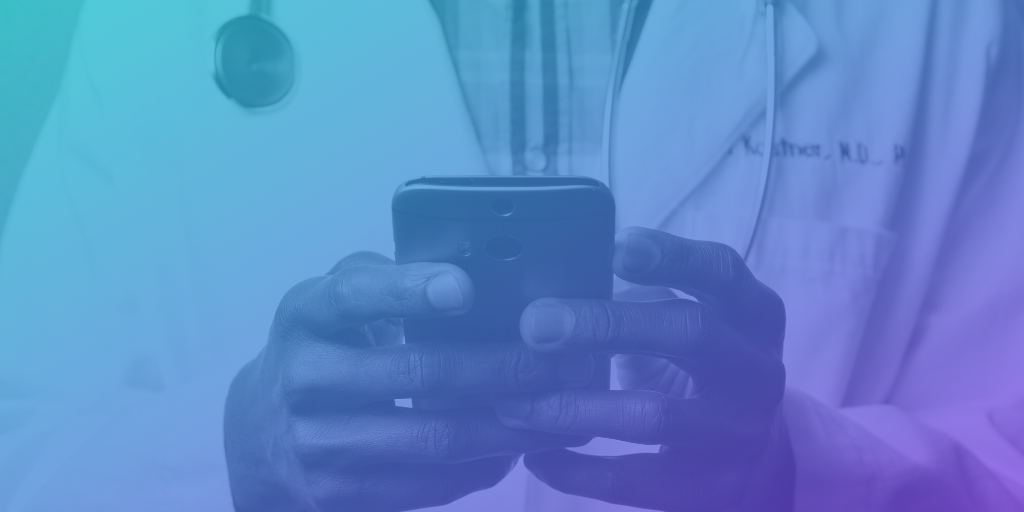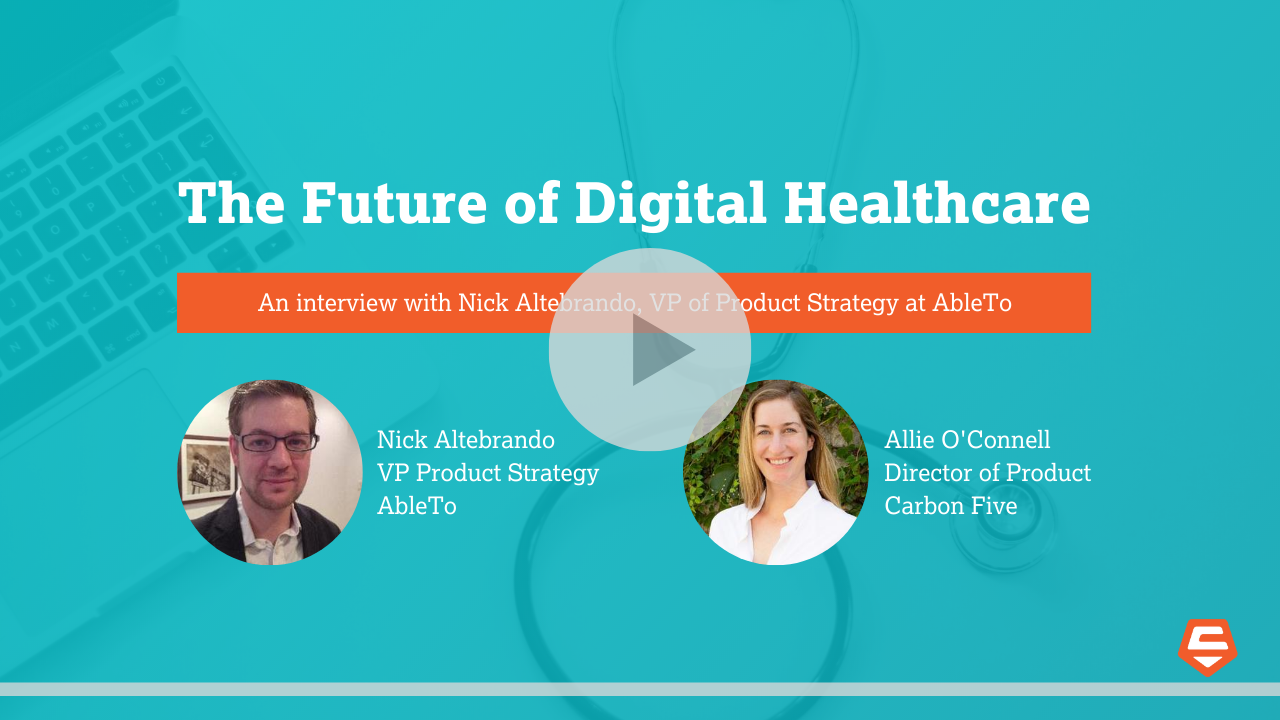
The Future of Digital Healthcare: Interview with Nick Altebrando from AbleTo
The health and wellness industry is being forced to quickly adapt to new norms faster than ever before. Telemedicine and telehealth services are now on the rise. Contactless patient care and remote check-ups are becoming routine. Customer needs and behaviors are changing almost daily.
So what does this mean for the future of health and wellness products and services?
We sat down with Nick Altebrando, VP of Product Strategy at AbleTo, the leading provider of virtual behavioral healthcare services, to learn how the pandemic has impacted business, presented challenges and created new opportunities for companies in the health and wellness industry.
TLDR – Interview recap in a snapshot:
- Startup opportunities in digital healthcare continue to grow everyday.
- Ability to flexibly scale is a competitive advantage within the industry.
- Understanding user behavior and being able to adapt products to meet user needs is especially important during the pandemic.
- Providing resources, tools, and structure can help product teams adjust to new remote work environments.
- Founder advice – Always be solving a problem to succeed!
- Watch the complete interview with AbleTo here.
A few highlights from the conversation

Opportunities to grow in the digital health and wellness industry are abundant. Even before the pandemic, there was a high demand for telehealth and digital healthcare services.
“Two major reasons for therapy to be done virtually versus in person is that there is a massive access problem in the country … close to 50% of counties in the country don’t have enough licensed therapists to treat the population of the county. It’s really concentrated around the major cities. So there is a geographical access problem. Another major issue is ongoing stigma. The physical act of going for help is hard. When you can do it from the comfort of your own home, in a private environment, it reduces the barrier. And obviously, there are simple conveniences, you don’t have to commute to your mobile phone for your visit.”
There is still a massive amount of growth and lots of room for competitors within the industry. Scaling is the key to success.
“In the past, telehealth was structured like urgent care. How it works is, you’d hit a button on an app and a stranger doctor would get on the phone. You don’t know who they are and you’re never going to talk to them again and they would help you with your urgent issue. But your doctors, if you needed to see them, would ‘say set up an appointment.’
What’s shifted is that almost every doctor in the country is now doing televisits with their own patients. Neurologists, oncologists, dermatologists and PCPs are realizing that it works.
What’s becoming more important [for digital healthcare companies] is being able to scale. Just offering services isn’t enough as it hits the real mainstream, the ability to scale flexibly will be the main competitive benefit.”
User behavior is always changing. It’s important to continually adapt products to meet user needs especially during the pandemic.
“Service numbers [at AbleTo] are booming, volume is significantly up because people have more time to [take care of] themselves and enter programs that we offer,” shared Nick. “[Our] product and engineering staff had to adjust not only to working from home, but also to a lot of product changes that we needed to make to support our customers and patients.”
For product managers, Nick suggests, “if you know how people behave, knowing why isn’t always as important. It’s frustrating that you don’t know what’s driving behavior, but it’s more important to know how they behave and what they do versus why. I tend to lean towards experimentation and real world evidence or user experience research more than psychometric style analysis. More upfront research.”
Remote work is challenging, but structuring the collaboration process and over communicating can help teams stay focused and engaged.
“[Before the pandemic] our product and design staff worked on-site in San Francisco and New York. A lot of collaboration, brainstorming and problem solving happened in the aisles of the office and in conference rooms with whiteboards,” said Nick.
“We didn’t have to have a structured process to drive collaboration and creative thinking. And it’s all changed on a dime and it’s something we’re adjusting to. You have to force time to collaborate vs just doing it because you’re all together physically…more structured meetings around status…weekly stands ups…are what we’re working on. Otherwise there is a risk of fracturing… We have to over communicate… [we’re] still figuring it out but keeping the train running.”
The future of digital healthcare is simply healthcare.
“There’s a common phrase – ‘We’ll know that digital healthcare has had an impact when people just call it healthcare.’ Digital connectivity tools and things that track your health are not that different from thermometers and stethoscopes, they’re just newer tools. No one has a special word for thermometers and stethoscopes. I think we’ll see the same for telehealth where you’re not going to say, “I did a televisit with my dermatologist!” you’re going to say, “I went to the dermatologist.” The fact that it was done over email or video call or exchanging photographs is not going to seem so unusual.”
General advice for new founders: “Almost every successful startup starts with solving a problem.”
“When you’re solving a problem or removing friction for people, you’re able to grow and find a foothold. If it’s hard for you to identify a problem you are solving you’re probably going to be struggling.”
Watch the complete interview with AbleTo’s VP of Product Strategy and sign-up for the next Agile Growth Workshop to learn more about product development and design.